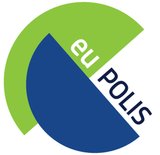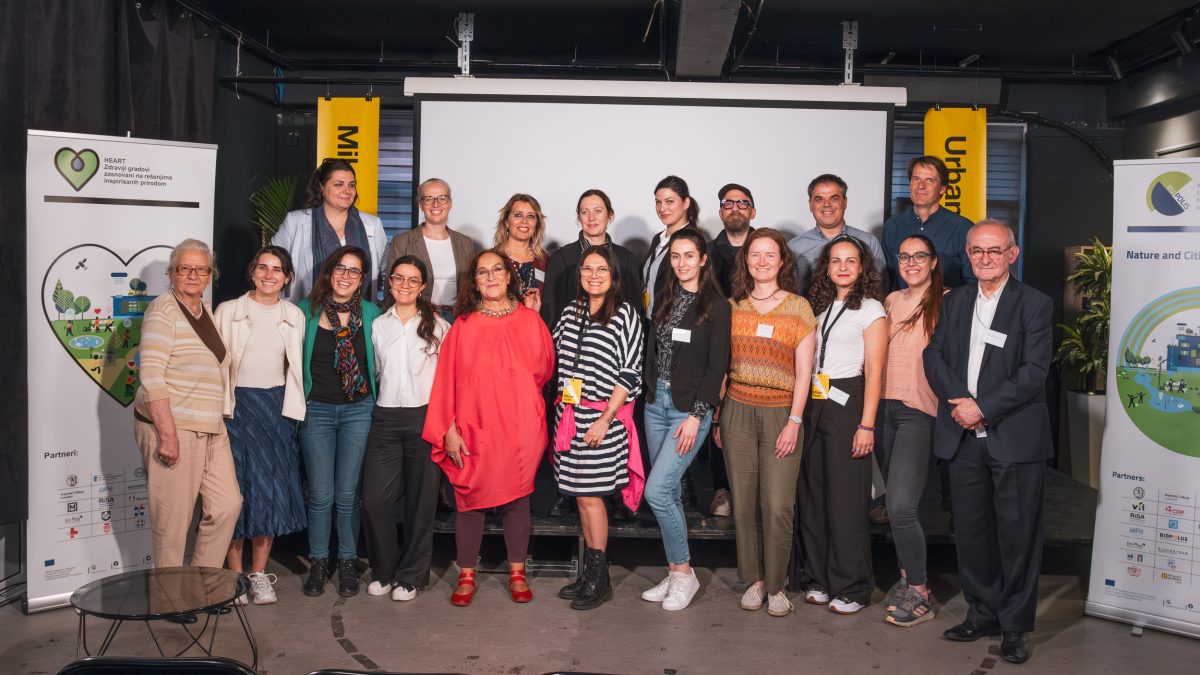euPOLIS Urban Lab – Designing Cities to Fit the Citizens
The all-day program of the Urban Lab at the recently concluded Mikser festival gathered more than 60 experts from various fields applied to the designing and improving of cities and public spaces aimed at the health and well-being of citizens.
With euPOLIS and HEART experts, Čedo Maksimović (Imperial College London), Anja Ranđelović (Faculty of Civil Engineering in Belgrade), Ranko Božović, Nataša Đurić and Milena Zindović (EnPlus), Maja Lalić (Mikser), Morten Rask Madsen (BySpektrum), Ewa Domaradzka (Institute for Social Sciences Robert Zajonc), Julijana Uribe Aguado (Uniandes), Manuela LobboGuerre Duque, Monica Giraldo (RenoBo), Emmanuel Sardis (NTUA), Sanja Ivanković (Dragiša Mišović Institute) and Dragana Jovanović (Batut), Urbana Lab started by the lecture of the World Bank high staff representative, Megha Mukim.
Photos: Miloš Čubrilo
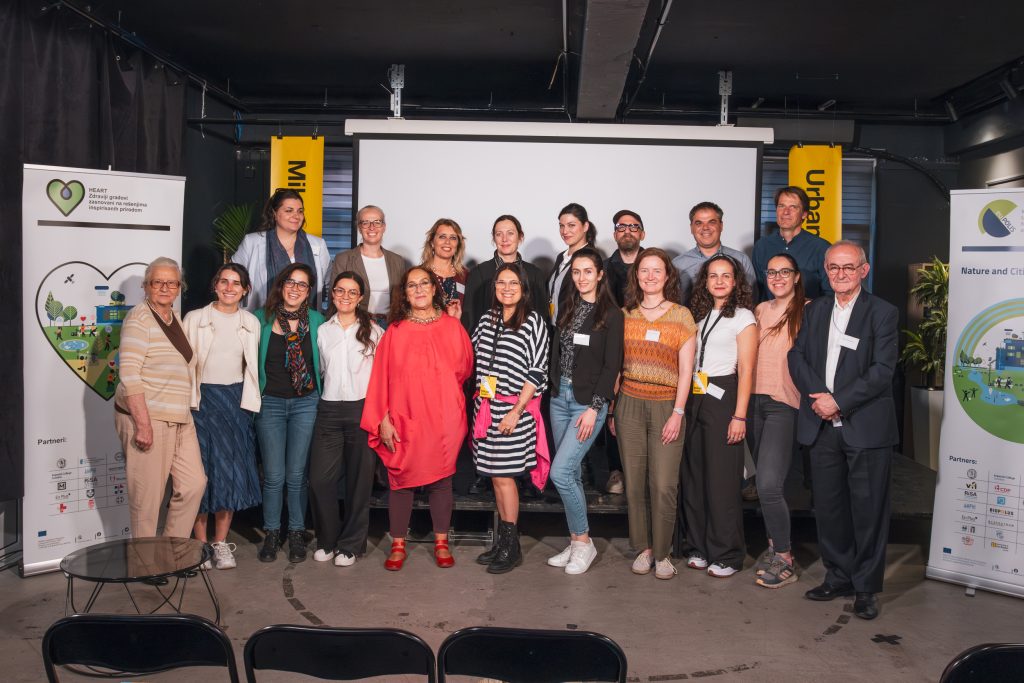
Megha has dedicated her career to the urban economy and the effects of greening cities on all spheres of urban life, from health and well-being to the development of sustainable businesses. In her lecture, she referred to the environmental conditions in the region and connections between education, public policies, management technologies, and business development with concrete examples from the cities of the Balkan region.
Inspired by the philosophy of the European projects euPOLIS and HEART, healthy, happy, inclusive cities that respond to all the needs of their residents, especially the most sensitive social groups, are created by introducing urban solutions based on nature (NBS, nature-based solutions), but only through the broad participation of citizens through all stages of the process – the participants shared their experiences in efforts to implement these solutions in their cities: Athens, Belgrade, Lodz, Copenhagen, Palermo, Trebinje, Bogota, but also in numerous other cities in Europe and Latin America.
What are the technical prerequisites as well as the major challenges for implementing NBS (Nature-Based Solutions)? Why is there a lack of consistent support and engagement from citizens? Why are city administrations hesitant to incorporate the voices of their citizens into decision-making processes regarding public spaces? Why do citizens have such low confidence that spatial solutions have been proposed or already implemented for their benefit? What mechanisms could be used by decision-makers and citizens to create stronger, more honest, and permanent two-way communication?
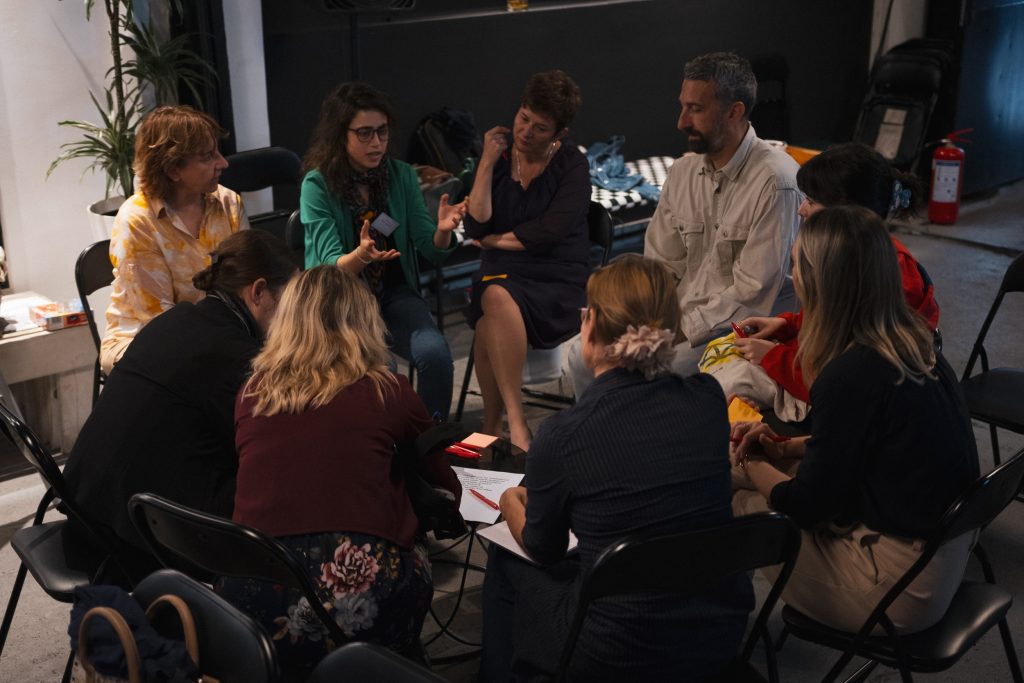
To these questions, through short mentoring sessions, but also an extensive workshop, the participants tried to recognize and name all the challenges and also to provide suggestions for overcoming them.
A special part of the Urban Lab was the exhibition of the pilot cities of the euPOLIS project (Belgrade, Piraeus, Gladsaxe (part of Copenhagen), Lodz, Trebinje, Palermo, and Bogota), a short film of the related Varcities project, which depicted the experiences of local experts in the implementation of NBS. The exhibition also showcased the joint efforts of the euPOLIS project with the “sister” cluster projects Varcities, InHabit, and GoGreenRoutes to create a joint, harmonized methodologies and goals in the processes of healing our cities.
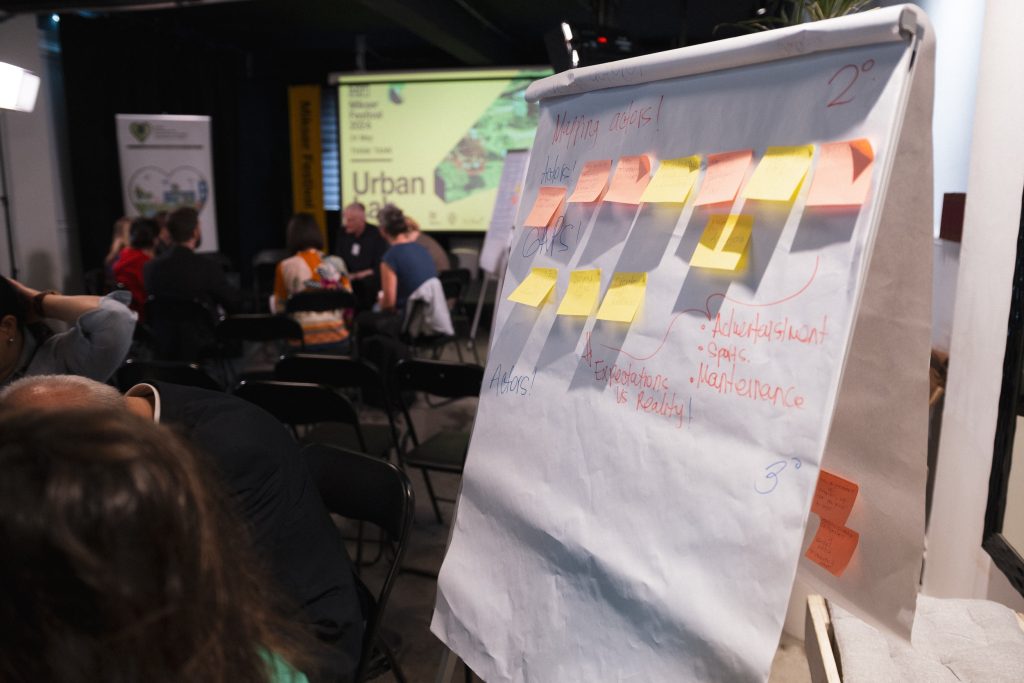
Their challenges, experiences, and suggestions will result in the euPOLIS publication, a practical guide for urban planners, architects, city administrations, and individuals, on how to more easily overcome the most common difficulties in implementing nature-inspired urban planning solutions, which are mostly in the domain of an underdeveloped culture of participation and partnership of citizens with city administrations, the non-transparency of decision-making of public importance and exhausting bureaucratic procedures without the flexibility of city administrations to make them simpler for citizens, associations, companies and other entities that strive to contribute to the transformation of the city into a healthier, safer, more inclusive and more desirable for the life of all social groups.
